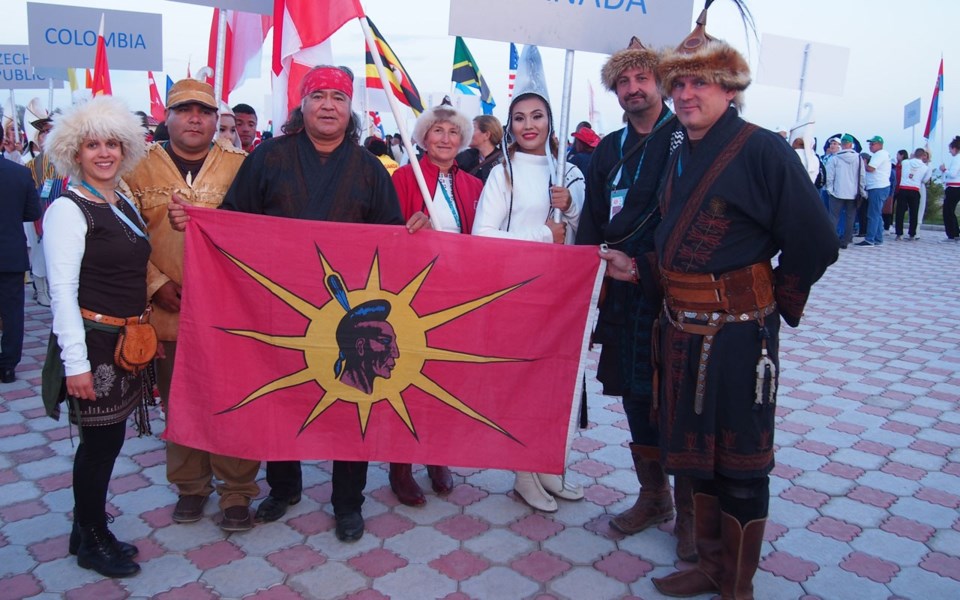Anyone in a niche sport has likely had some difficulty in one way or another.
For Robert Borsos and his club of horseback archers, it's been challenging to even get simple recognition from national sport organizations.
"Anything to do with a bow, the archery federation (Archery Canada) is regulating it. Anything to do with a horse, (Equestrian) Canada regulates it," he said.
When they tried to form their own organization, Borsos found little help available to complete that process. But even without an organization, he and his Mount Currie-based Borsos Torzs Horse Archery club has pressed on, with six members, Borsos, Alvin Nelson, Zoltan Csontos, Delmar Williams, Natalia Perchatkina and Anita Kollar, competing at the World Nomad Games in Cholpon Ata, Kyrgyzstan, from Sept. 2 to 8.
The team members are based in Mount Currie, Whistler and the Lower Mainland.
It was the first time Canadians had ever attended the event, which has been held every two years since 2014.
"Our club is basically the ambassadors for Canadian horse archery," Borsos said.
Without support from any sport organization or sponsor, the six athletes were entirely self-funded and as such, flew under their own flag instead of the maple leaf.
Two members had success, as Nelson made the top-five in the horse archery event while Csontos qualified for the Korean-style archery final.
Borsos appreciated the opportunity to compete alongside the likes of athletes who are national, continental and even world champions in locales where the sport is larger and more competitive. In particular, he closely watched the Hungarian team and determined that they were using different equipment.
"Their bows work in a different way. For example, a regular hunting traditional bow, you draw it to about 28 inches and you won't be able to draw it more," he said, adding new bows have extra give to 32 or 33 inches.
Borsos added that the arrows are different, too, with different feather fletching and nocks that make it easier to shoot much more quickly.
With the new equipment and two years to learn how to use it, Borsos expects even better results next time around.
"Next time, when we go to the World Nomad Games in 2020 in Turkey, we're going to be really, really prepared," he said.
Seeing some of the other roughly 40 sports included in the event was a bit of an eye-opener for Borsos, as some, like
kok-boru (where horse-mounted riders fight over a goat carcass) are dramatically different from North American sports. While they're not activities he's interested in, he respects that there are others who are playing them at the same event.
"These are these ancient games, which they've played for a few hundred or a few thousand years," he said. "They're never going to be in the Olympic Games, so they decided they should organize their own games.
"(There's the) idea that we're protecting our past because that's how we grew up, playing these games ... Keeping these traditions alive, it's beautiful. If you're accepting, you go, participate or watch. If not, who cares?"
Borsos also noted several heads of state were in attendance, and the security detail at the opening ceremony was impressively large as 2,000 athletes from over 70 countries marched in.
He added that in addition to the athletic element, the Games also hold a concurrent music and culture festival. With two Lil'wat Nation competitors on this year's team in addition to three with Hungarian background and one with Russian heritage, Borsos hopes to bring some extra Indigenous cultural elements in future years.




